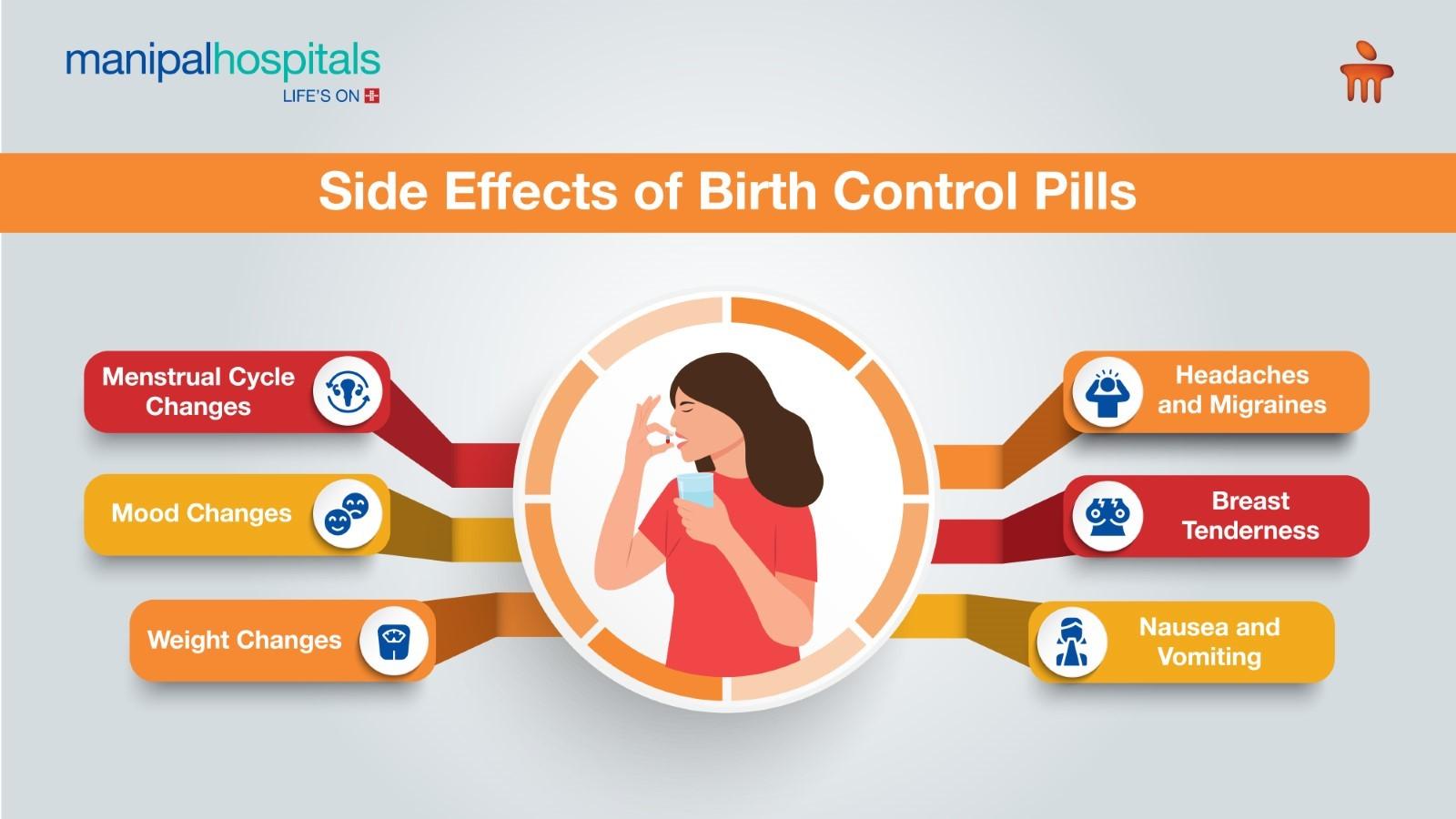
Contraception, or birth control, refers to methods used to prevent pregnancy. These methods work in various ways, including preventing ovulation, fertilization, or implantation. The efficacy of birth control depends on how consistently you use it. Hence, it is crucial to choose the right contraceptive method in consultation with your healthcare provider.
Synopsis
How Does Birth Control Work?
Each type of birth control works differently. Here are some common mechanisms by which birth control works:
-
Preventing sperm from reaching an egg.
-
Not allowing the ovary to release an egg.
-
Thickening cervical mucus so sperm can’t swim through it.
-
Thickening the uterine lining to prevent the egg from implanting.
Hormonal methods like patches and IUDs regulate hormones to prevent ovulation or thicken cervical mucus. Barrier methods, such as condoms and diaphragms, physically block sperm. Intrauterine devices (IUDs) can release hormones or copper to prevent fertilization. Emergency contraception, like the morning-after pill, can be used after unprotected sex. However, the most commonly used form of contraception is the birth control pill.
What Are Birth Control Pills?
Birth control pills are a widely used form of hormonal contraception that prevents pregnancy by inhibiting ovulation or making it difficult for sperm to reach an egg. Here are the two main types of birth control pills:
-
Combination Pills: These contain both estrogen and progestin hormones.
-
Progestin-Only Pills (Minipills): These contain only progestin and are often recommended for women who cannot take estrogen.
Benefits of Birth Control Pills
-
Effective Pregnancy Prevention: When taken correctly, birth control pills are highly effective in preventing pregnancy.
-
Regular Periods: They can help regulate menstrual cycles and reduce heavy bleeding.
-
Reduced Cramps: Birth control pills can alleviate menstrual cramps.
-
Clearer Skin: They may improve acne by regulating hormone levels.
-
Lower Risk of Certain Cancers: Long-term use may reduce the risk of ovarian and endometrial cancer.
Side Effects of Birth Control Pills

While birth control pills are effective, they can cause side effects. These vary from person to person. Common side effects include:
-
Menstrual Cycle Changes: Irregular bleeding, spotting, or missed periods are common, especially during the first few months.
-
Mood Changes: Some women may experience mood swings, increased anxiety, or depression.
-
Weight Changes: Mild weight gain or loss is possible.
-
Headaches and Migraines: Hormonal fluctuations can trigger headaches.
-
Breast Tenderness: Breasts may become sore or tender during the initial months.
-
Nausea and Vomiting: These are more common with certain types of birth control pills.
Long-Term Side Effects of Birth Control Pills
Using birth control pills over a prolonged period may increase the risk of some health issues, such as:
-
Blood Clots: Particularly in smokers or older women.
-
High Blood Pressure: Regular monitoring is advised.
-
Liver Concerns: Rare but possible risks to liver function.
Understanding the potential long-term side effects of birth control pills can help in making informed decisions. Consult our gynaecology hospital if you are experiencing contraceptive pill side effects,
Emergency Contraceptive Pills: Understanding Their Effects
Emergency contraceptive pills (often referred to as the "morning-after pill") are designed for occasional use to prevent pregnancy after unprotected sex. Common side effects include:
-
Irregular Bleeding: This may cause temporary changes in menstrual cycles.
-
Nausea: Often experienced after taking the pill.
-
Mood Swings: Hormonal shifts can influence emotional states.
Emergency contraceptive pills are not intended for regular use and should be taken under guidance if needed.
What You Need to Consider
-
Regular Use: Take birth control pills consistently and at the same time daily for maximum effectiveness.
-
Medical Consultation: Consult a gynaecologist to discuss your medical history and any potential risks before starting.
-
Additional Protection: Birth control pills do not protect against sexually transmitted infections (STIs). Using condoms is essential for STI prevention.
Key Takeaways
Birth control pills are a popular and effective contraceptive method that works by regulating hormones to prevent pregnancy. They are available in two main types: combination pills (estrogen and progestin) and progestin-only pills (minipills). While highly effective, they can have side effects like mood swings, irregular bleeding, and weight changes. Long-term side effects may include an increased risk of blood clots and high blood pressure, though these are rare. Emergency contraceptive pills provide a backup option for unprotected sex but should not replace regular contraception. It is vital to consult a healthcare provider to choose the best option for your needs and ensure safe use.
FAQ's
Mild weight changes can occur but are uncommon for most women. It depends on individual factors and the type of pill.
No, they do not affect long-term fertility. Fertility returns once you stop taking them.
Yes, hormonal changes may lead to mood swings, anxiety, or mild depression.
It typically takes about 7 days for birth control pills to become effective. Use additional contraception during this time.
Although rare, long-term use may increase the risk of blood clots, high blood pressure, or liver issues. Regular medical check-ups are recommended.
Smoking increases the risk of severe health issues, including blood clots. Consult your healthcare provider for guidance.
Emergency contraception is most effective when taken soon after unprotected sex. It should not replace regular birth control methods.
Follow the instructions on your pill pack or consult your healthcare provider. Missing pills can lower effectiveness.
Schedule regular check-ups and consult a doctor if you experience unusual symptoms or have concerns.






















 5 Min Read
5 Min Read















